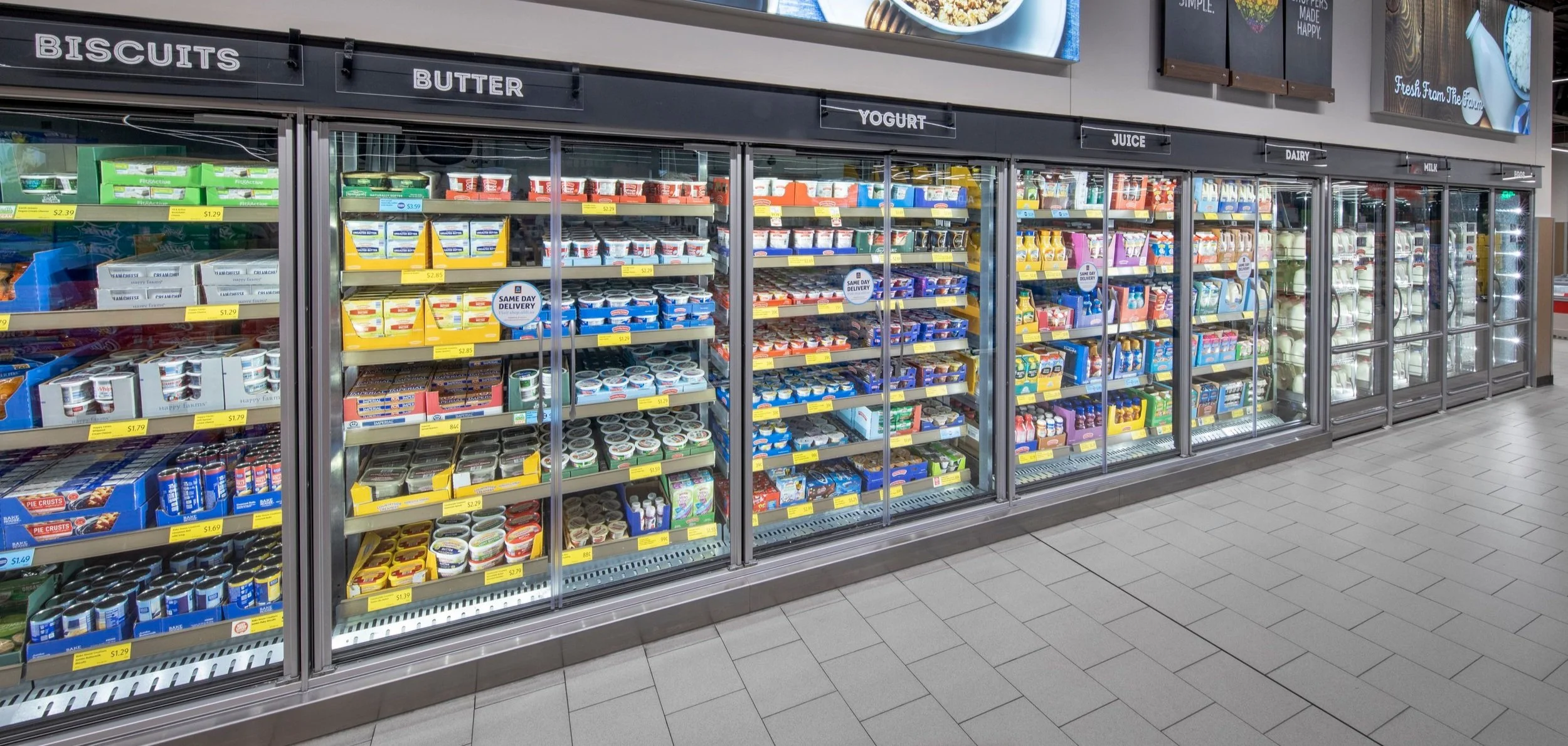ALDI becomes first U.S. food retailer to commit to natural refrigerants across all stores
ALDI’s industry-leading climate commitment to phase-out super pollutant refrigerants
Major U.S. supermarket chain ALDI has committed to transition to natural refrigerants across all of its 2300+ U.S. stores before the end of 2035. ALDI has led action to tackle climate-polluting refrigerants for years, and its recent announcement raises the bar to a new level for U.S. food retailers.
Potent ‘super pollutants’ called hydrofluorocarbons (HFCs) used as refrigerants are leaking out of U.S. supermarkets and grocery stores, equating to burning 49 billion pounds of coal every year. HFCs are human-made greenhouse gases with global warming potentials (GWP) thousands of times higher than the same amount of carbon dioxide. They’re used mainly as refrigerants in cooling systems – from our fridges, cars, and home air conditioners to factories and supermarkets. Today, HFCs are the fastest growing greenhouse gases in the world.
Major U.S. food retailers have been slow to transition to HFC-free natural refrigerant alternatives, lagging behind counterparts in the European Union. Adoption of climate-friendly natural refrigerants has accelerated in the U.S. in recent years as companies move to transition away from HFCs to comply with emerging regulatory requirements, however there is a long way to go for many food retailers in the U.S. and across much of the rest of the globe.
HFCs make up a staggering 60% of Scope 1 emissions for many major U.S. food retailers such as Kroger and Walmart, and failure to accelerate the transition away from HFCs could prevent these companies from meeting science-based climate targets.
This commitment makes ALDI the first company in the U.S. to set an end date for completing a transition to all natural refrigerant technologies such as carbon dioxide and propane, completely phasing out HFCs.
An important aspect of this commitment is that it goes beyond using refrigerant alternatives in new and remodeled stores, to also replacing HFCs in existing stores. Other U.S. companies have stated goals to use climate-friendly refrigerants in new stores, but ALDI is the first to commit to achieve this across all new and existing refrigerant systems by a targeted date.
Some companies have focused efforts on curbing refrigerant leaks, another key aspect of reducing HFC emissions, however, ALDI has followed a more holistic approach by both preventing system leaks and also seizing opportunities to transition its stores to natural refrigerants.
ALDI reports using natural refrigerants in over 600 stores, which helps the company prevent nearly 60% of potential carbon emissions each year.
EIA’s Supermarket Scorecard assesses the largest supermarket chains in the U.S. on three key areas: HFC-free technology adoption, refrigerant management, and policy and commitments. ALDI has secured the top score overall and in technology adoption for several years, as it has deployed HFC-free equipment in more stores than any other company across North America.
EIA’s report, Beyond Words, calls for companies to commit to more ambitious climate action in the cooling sector. ALDI has started off 2024 as the first company to make a cooling commitment that meets the urgency of the climate crisis. The question now is, who will follow their lead?
Stay tuned for the next edition of EIA’s Supermarket Scorecard coming this spring.
